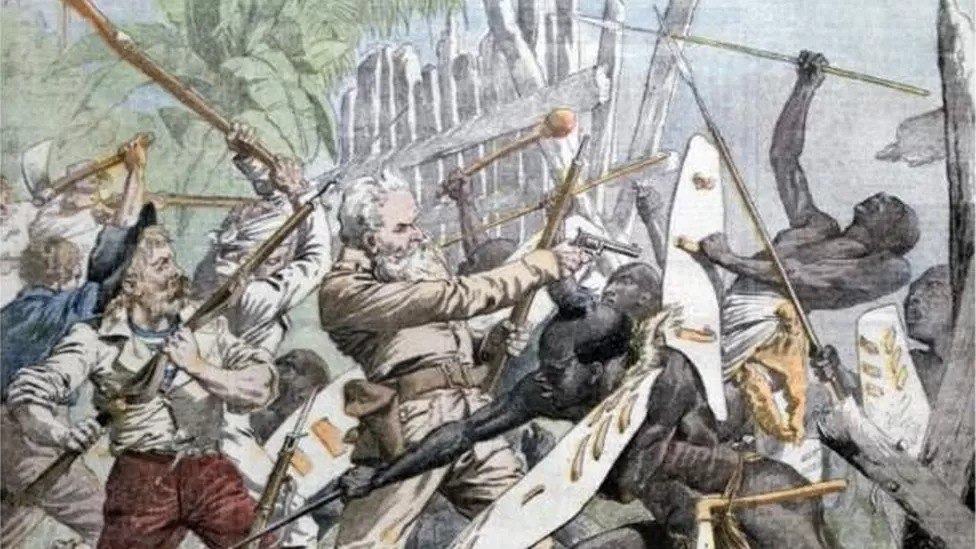The German president has apologized to the Tanzanian government for the colonial atrocities his country inflicted on Tanzania.
German forces killed almost 300,000 people during the Maji Maji rebellion in the early 1900s, one of the bloodiest anti-colonial uprisings.
President Frank-Walter Steinmeier was speaking at a museum in Songea, where the uprising took place.
“I would like to ask for forgiveness for what Germans did to your ancestors here,” he said.
“What happened here is our shared history, the history of your ancestors and the history of our ancestors in Germany.”
The Maji Maji rebellion was triggered by a German policy designed to force the indigenous population to grow cotton for export.
Tanzania was a part of German East Africa, which consisted of modern-day Rwanda, Burundi and parts of Mozambique.
President Steinmeier said he hoped Tanzania and Germany could work towards “communal processing” of the past.
As part of the three-day visit, the president met the descendants of one of the Maji Maji leaders, Chief Songea Mbano, who was among those executed in 1906.
He is now considered a national hero in Tanzania and President Steinmeier told the family the German authorities would try to find his remains.
Thousands of human remains were brought from German colonies – partly as “trophies” but also for racist research.
On Tuesday, after meeting President Samia Suluhu Hassan in Dar es Salaam, he promised that Germany would co-operate with Tanzania for the “repatriation of cultural property”.
In 2021, Germany officially acknowledged committing genocide during its occupation of Namibia and announced financial aid worth more than €1.1bn (£940m; $1.34bn).
The statements from Germany’s president come after King Charles acknowledged the “abhorrent and unjustifiable acts of violence committed against Kenyans” during their independence struggle, while on a visit to Nairobi.
However, the British monarch did not deliver a formal apology which would have to be decided by government ministers.




